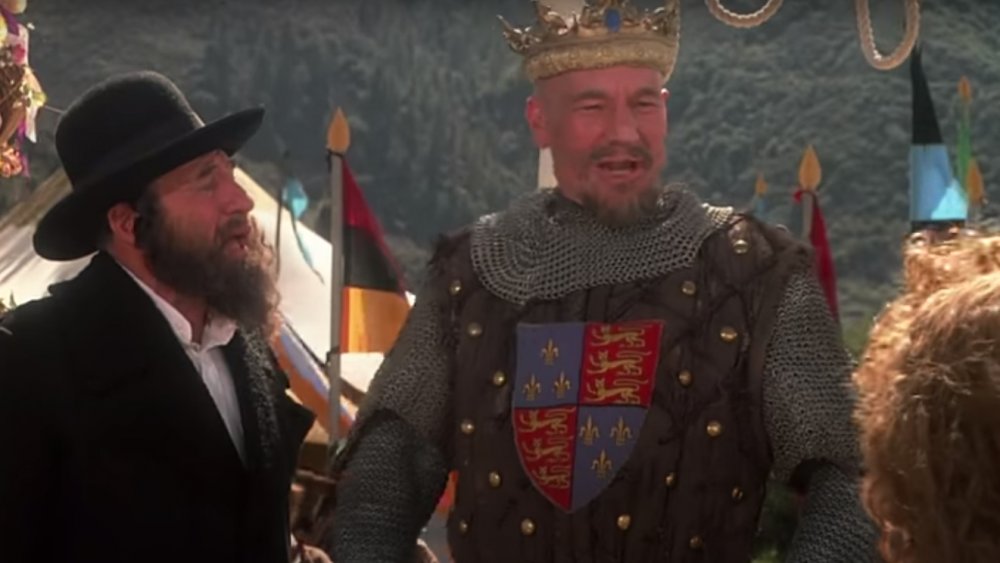The Truth About Richard The Lionheart's Marriage
Lionheart. Great nickname for a medieval king. These days, sometimes referred to as "Richard of the Last Reel," since that's usually when he shows up in Robin Hood movies, according to the BBC's History Extra. Not unlike England's King Henry VIII, Richard wasn't supposed to be king, but his elder brother, Henry, died before assuming the throne, and it fell to Richard when their father, Henry II, died.
Perhaps Richard I's main claim to fame is his participation in the Third Crusade, working with other European powers to try to wrest Jerusalem from the forces of Saladin, who in turn had taken the area from the Crusaders who had controlled it for nearly 90 years. Richard and his European coalition had military success in the Middle East, but failed to retake Jerusalem and, after negotiating a truce, Richard tried to return to England, where his brother, Prince John, had been plotting against him and providing context for the aforementioned Robin Hood movies.
AKA "Richard of the Last Reel"
Richard is consistently described as not interested in women, and spurned a decent list of eligible princesses. The lack of issue was indeed an issue; there was no heir to ascend to the throne upon his death. Not even the needs of his country could make him change his mind. He'd been betrothed, as English royals often were, when he was 9, to Princess Alais of France. They never married, and in fact Richard's father, once he had possession of the princess, basically imprisoned her and used her as his mistress.
History News Network relates that it was in Cyprus that Richard's mother, Eleanor, presented him with a potential bride, Berengaria of Navarre. Richard and Berengaria married, and although she traveled to the Holy Land with him, she didn't remain with him long; some historians question whether the marriage was even consummated. Most of the time, the only women allowed to travel with Richard's crusaders were laundresses.
It's only a slight maybe that Berengaria even visited England, making her the only queen (so far) to have never reigned within the country. After Richard's death, she remained single, doing good works and praying. As for Richard, he is said to have fathered and acknowledged one illegitimate son, Philip of Cognac, according to English Monarchs. Richard's lifetime, spent in warfare, ended that way, too, when he reportedly died of an infection from a battle wound in France. He was buried at Fontevraud Abbey in Anjou, with his father and mother.

